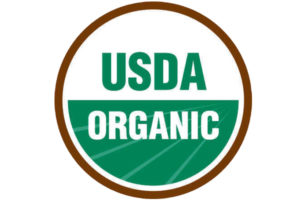
Last month, the National Organic Standards Board (NOSB) discussed an organic seed policy proposal developed by the Crops Subcommittee. The proposal (see pg. 51) aims to do two things: 1) update the organic seed regulation, and 2) strengthen the National Organic Program’s (NOP) organic seed policy guidance document for certifiers. The NOSB voted to send the proposal back to the Crops Subcommittee for additional tweaking per the suggestion of many public commenters. An updated proposal is expected to be on the NOSB’s spring meeting agenda.
What does the proposal say?
The proposal recommends an update to the organic seed rule by requiring farmers to demonstrate annual improvements in organic seed sourcing until they reach full compliance. The recommendation allows certifiers flexibility in working with operations to meet this goal, including how best to measure improvement. The proposal also provides detailed recommendations for improving the NOP’s 2013 guidance document on organic seed and planting stock (NOP 5029), a crucial resource for certifiers who are charged with interpreting and enforcing the organic seed rule. If passed by the NOSB and implemented by the NOP, these changes would result in clearer guidance and more consistent enforcement of the organic seed requirement.
Why is this proposal important?
Current organic regulations require organic farmers to use organic seed when commercially available. Because the organic seed supply was insufficient when the rules were implemented, farmers are allowed to plant conventional, untreated, and non-GMO seed when organic seed is unavailable. This exemption is meant to provide a transition time for the organic seed supply to catch up to demand. Over the last 15 years, we’ve made much progress in increasing the quantity, diversity, and quality of organic seed available. Though the exemption is still needed given supply gaps, it is more important than ever that organic operations continuously improve their use of organic seed. The benefits of doing so go well beyond meeting a regulatory requirement.
Why does organic seed matter?
Organic plant breeders and seed producers are working for organic farmers by focusing on characteristics that are especially important to low-input systems, such as quick emergence, weed competitiveness, nutrient-use efficiency, disease resistance, and more. Too much of our seed is currently bred and produced under conventional, agrochemical conditions, and with breeding goals that often don’t benefit organic farmers. The organic community has an opportunity to create a path for organic seed that’s distinct from the dominant seed industry controlled by agrochemical interests.
We all have a role to play in creating this path. As mentioned, increasing the availability of organic seed isn’t just important for helping organic farmers meet a regulatory requirement — the benefits are potentially far-reaching. Seed holds endless potential for transforming our food system, especially when coupled with the principles that built the organic movement — the principles of diversity, health, ecology, and fairness. We can breed and grow more organic seed that is adapted to organic farming systems and regional climates, and that contain traits important in the field and on our plates. This path is shaped by our individual decisions to choose organic seed when appropriate, to communicate ongoing supply gaps and challenges to the organic seed community, and to advocate for collaborative solutions to meet these needs.
Will organic farmers be “forced” to use organic seed?
No one is intent on forcing organic farmers to use organic seed that isn’t a good fit for their production systems and markets. Yet the allowance to use non-organic seed has also proven a challenge to growing the diversity and quality of organic seed available. This modest proposal recommends that organic operators who don’t make an effort to source more organic seed over the years be encouraged to take extra measures to demonstrate improvement. This is a practical proposal that signals to the broader organic community that organic seed is important to organic integrity, and that further investments in organic seed will have a positive ripple effect that leads to more high-quality seed options that are well-suited to organic systems.
What’s next?
Organic seed issues are complex, to be sure, and the NOSB seems to be striving to honor this complexity by providing practical recommendations that balance reality on the ground with regulatory requirements. The next NOSB meeting is scheduled to take place from April 25 – 27, 2018, in Tucson, Arizona. Stay abreast of organic seed policy comment opportunities by following Organic Seed Alliance on social media (Facebook and Twitter) or by joining our quarterly e-newsletter.
